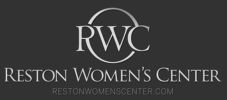Proudly Part of Privia Health
Complementary Medicine
Most of us are familiar with Western Medicine. It is the most common type of health care in the United States, where medical doctors and other healthcare professionals (such as nurses, pharmacists, and therapists) treat symptoms and diseases using drugs, radiation, or surgery. It is also called allopathic medicine, biomedicine, conventional medicine, mainstream medicine, and orthodox medicine. Any non-mainstream practice is used in place of conventional medicine is considered “alternative”.
The term Alternative Medicine is usually used to describe health approaches that aren’t part of western medicine. This would include Natural Products, such as herbs (also known as botanicals), vitamins and minerals, and probiotics. Mind and body practices would also be considered an alternative. This would include, osteopathic manipulation, meditation, and massage therapy, yoga, acupuncture, relaxation techniques (such as breathing exercises, guided imagery, and progressive muscle relaxation), tai chi, qi gong, healing touch, reiki, hypnotherapy, and movement therapies (such as Feldenkrais method, Alexander technique, Pilates, Rolfing Structural Integration, and Trager psychophysical integration). Also, considered to be alternative are “traditional healers” who practice Ayurvedic medicine, traditional Chinese medicine, homeopathy, and naturopathy.
Just as the term would suggest, complementary medicine is when you combine both western and alternative medicine, using each one when it is appropriate. According to the 2012 National Health Interview Survey (NHIS), which included a comprehensive survey on the use of complementary health approaches by Americans, 17.7 percent of American adults had used a dietary supplement other than vitamins and minerals in the past year. These products were the most popular complementary health approach in the survey. The most commonly used natural product was fish oil.
Recognizing the value of complementary medicine, many medical and nursing colleges are now including alternative therapies as part of the curriculum. Groups such as the National Institutes of Health (NIH) are conducting studies to confirm or reject the effectiveness of these traditional healing approaches. Because this research is in its infancy there are frequently no scientific studies to prove or disprove their effectiveness or harmfulness. Therefore, caution is recommended when using alternative or complementary treatments. It is always important to share all your health practices with your health care provider to avoid complications or interactions that may happen when using complementary medicine.
Treating the person as a whole, not just the disease is the goal of complementary medicine. It requires personal commitment and responsibility for one’s health. The objective is to move the body, mind, and spirit into a place of balance. The health provider and the individual work together to facilitate a state of optimal health. I believe this is the future of healthcare.
